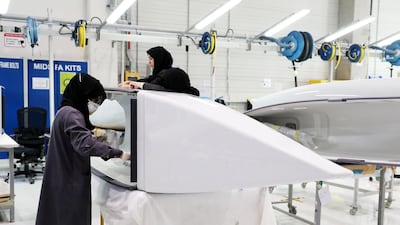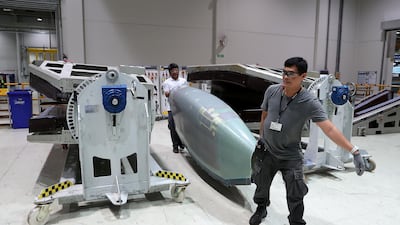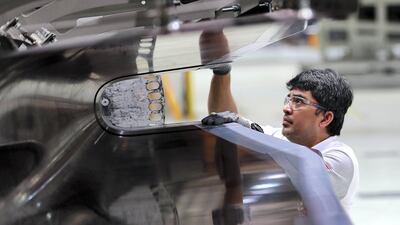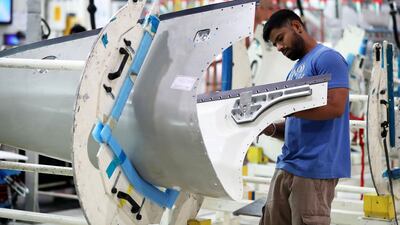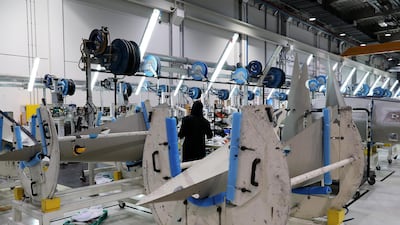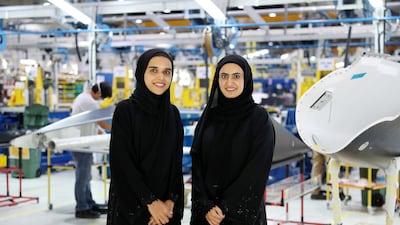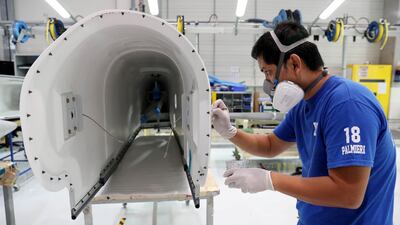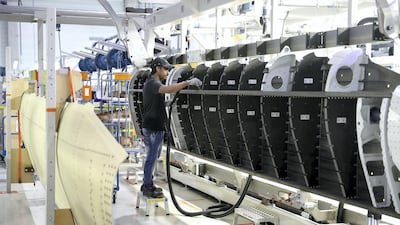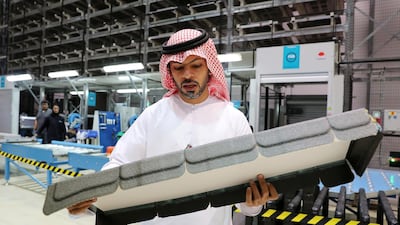About 60 companies in the aviation sector have pledged to increase the share of sustainable aviation fuels in the industry to 10 per cent by 2030, to help the world reach the Paris Agreement goal of carbon neutrality by 2050.
The companies, which include airlines, airports and those reliant on corporate travel, plan to accelerate the adoption of low-carbon alternatives to fossil fuels used to power the world's airlines.
“Hard-to-abate” sectors – including shipping, aviation and steel – comprise over one quarter of global CO2 emissions.
Lowering the aviation sector's greenhouse gas emissions is a continuing challenge for global policymakers.
Companies including Shell, Airbus, Bank of America, Boeing, American Airlines, British Airways, Heathrow Airport, Iberia, TotalEnergies and Visa are among the 60 signatories to the pledge to accelerate deployment of sustainable fuels.
Sustainable fuels are made from renewable feedstock, such as municipal and agricultural wastes. Such fuels have already been used on more than 250,000 commercial flights.
“Progressing the development and commercial deployment of sustainable aviation fuel is crucial to decarbonising the aviation industry,” said Sean Doyle, chairman and chief executive of British Airways.
“Our announcement today to reach 10 per cent SAF by 2030 emphasises our commitment to the planet and prosperity. Upscaling SAF with a global approach will boost India’s economy,” said Ajay Singh, chairman and chief executive of Indian budget airline SpiceJet, which is also one of the signatories.
The move by the 60 companies follows a call to government and oil majors by airline trade association the International Air Transport Association to redirect their focus and investment to support sustainable aviation fuels.
“The time for talking is over, the time for action is now, we want everybody in the industry to play their part and to raise their game significantly to ensure we can meet the targets that are necessary for the industry,” said Willie Walsh, Iata's director general, in July.
The aviation industry has come under pressure from climate change activists to reduce its carbon emissions.
In 2009, Iata pledged to halve carbon output by 2050, compared with 2005 levels, but has not updated its target since then – despite emissions rising due to a pre-pandemic air travel boom.
Higher production of sustainable aviation fuels could lower the costs, as global airlines continue to invest in cutting their carbon footprint.


